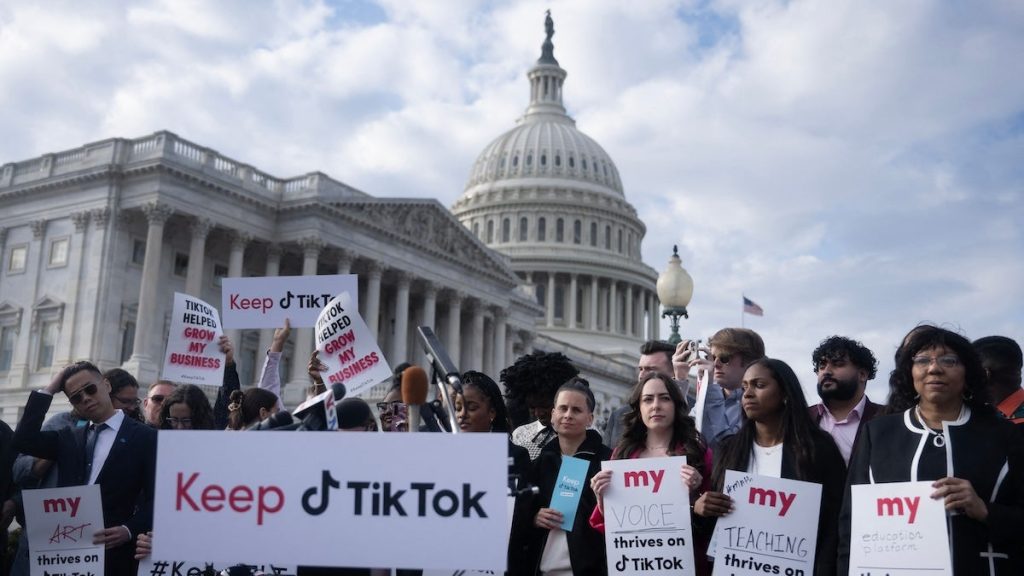On Saturday, the House of Representatives voted to approve a bill that would mandate TikTok to be sold to a non-Chinese company. If the Senate and the president also approve it, TikTok-owner ByteDance will have one year to sell the app. If that doesn’t happen, the popular social media video app would be prohibited in the United States.
The prohibition was included with aid for both Israel and Ukraine. Pressure on House Speaker Mike Johnson has risen due to controversy over the Ukraine funding, leading some members of his own party to threaten his removal from the speakership.
It is anticipated that ByteDance will contest the measure, which passed by a 360-58 vote, in court on the basis that a ban would deprive millions of users in the United States of rights given by the First Amendment. Any legal challenge could also provide the company with more time to find a buyer for the app.
The bill is an unusual one for American lawmakers, as they have never before targeted a specific company. Members of both political parties have expressed concerns about whether or not ByteDance could be compelled to give Chinese authorities access to sensitive data.
It also encompassed a substantial $95 billion aid package for Ukraine, Israel, and allies in the Indo-Pacific, including Taiwan. The issue of sending another round of aid has caused division within the House GOP, resulting in a fracture of the Republican caucus, with more traditional Republicans supporting sending funds to counter threats from Russia and China, and their more conservative counterparts advocating for less foreign spending.
In a move intended to challenge ultra-conservative leaders, Speaker Mike Johnson brought four bills for overseas funding to the floor. Earlier this week, Johnson explained part of his reasoning: “To put it bluntly, I would rather send bullets to Ukraine than American boys. My son is starting at the Naval Academy this fall; this is a live-fire exercise for me, as it is for many American families. This is not a game. It’s not a joke. We can’t play politics with this, we have to do the right thing.”
Ultra-conservative leaders have objections to the aid package for three reasons: some want American money to be spent domestically, others want to halt increasing the national debt, and a third group aren’t keen on assisting Ukrainian President Volodymyr Zelensky post the impeachment of Donald Trump.
Some Democrats have also voiced concerns about the aid package, but for a different reason. Of the $26 billion allocated for Israel, $9.2 billion is for humanitarian aid for Gaza. Some Democrats have called for more funding for the besieged territory.



